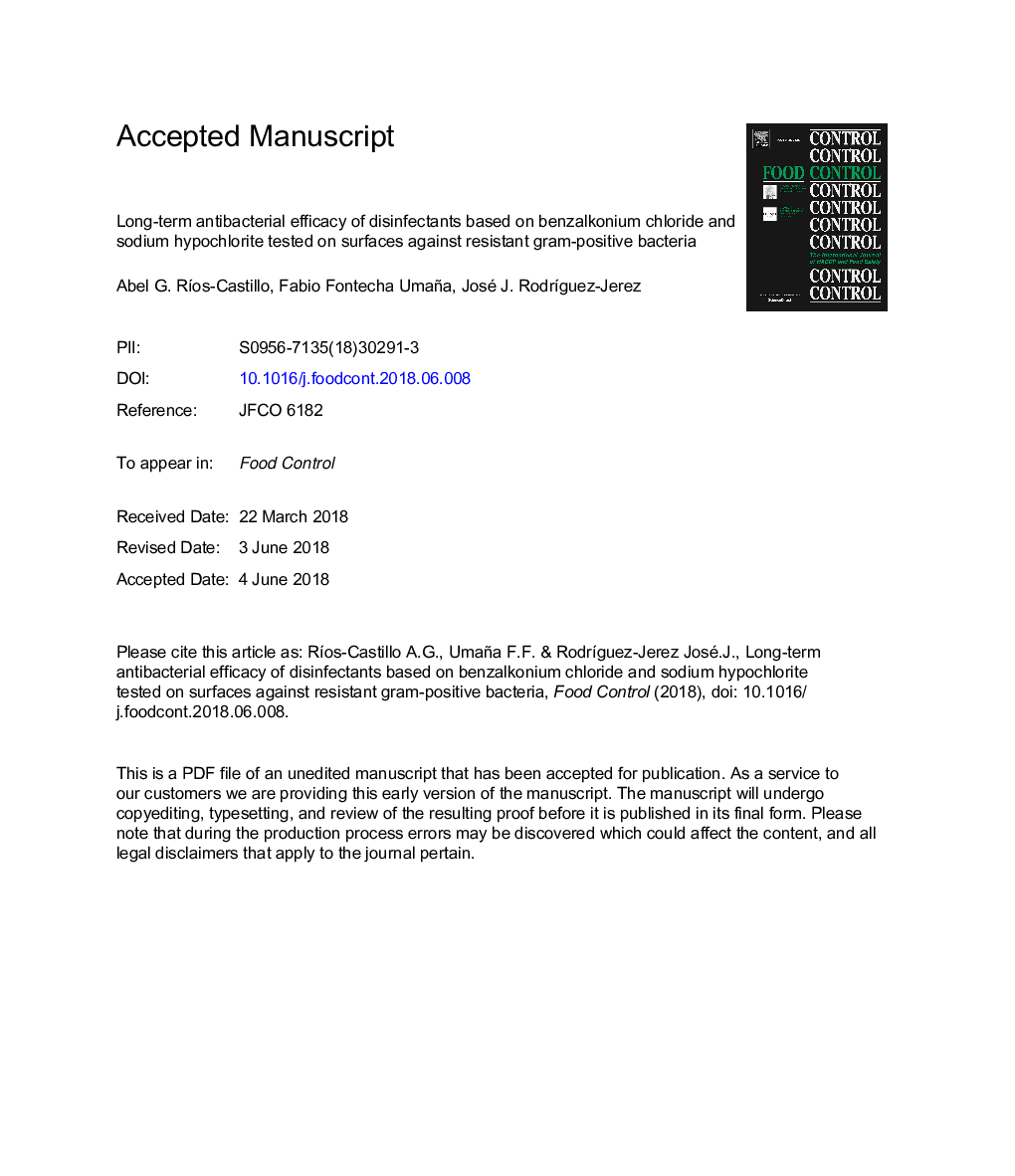| Article ID | Journal | Published Year | Pages | File Type |
|---|---|---|---|---|
| 8887750 | Food Control | 2018 | 29 Pages |
Abstract
The long-term antibacterial activity of disinfectant products based on benzalkonium chloride and sodium hypochlorite on surfaces was evaluated for prevention of bacterial adhesion. To this end, the European standard EN 13697, which determines the antibacterial activity of disinfectant formulations on bacteria, was adapted. As a prior step, the initial antibacterial activity (â¥4 log10) was determined and after 24â¯h the long-term efficacy (â¥3 log10) of each disinfectant product. Gram-positive bacteria belonging to the genera Staphylococci and Enterococci are able to survive in adverse conditions and have been involved in the increasing of bacterial resistance to different antimicrobials. In this study, Staphylococcus aureus and Enterococcus hirae were selected as 'indicator organisms' for the presence of bacterial contamination. The results showed that all the disinfectant products based on benzalkonium chloride and sodium hypochlorite had an initial antibacterial activity of up to 4 log10. After 24â¯h, the benzalkonium chloride based products demonstrated long-term antibacterial efficacy for both bacterial strains. Sodium hypochlorite as a sole compound at 4.0% did not demonstrate long-term efficacy, but when it was formulated with sodium hydroxide, benzalkonium chloride, fatty alcohol ethoxylate and amine oxide, it was effective. The bactericidal test developed in this study fulfills the purpose of evaluating the long-term antibacterial efficacy of disinfectant products on surfaces.
Keywords
Related Topics
Life Sciences
Agricultural and Biological Sciences
Food Science
Authors
Abel G. RÃos-Castillo, Fabio Fontecha Umaña, José J. RodrÃguez-Jerez,
